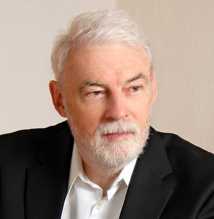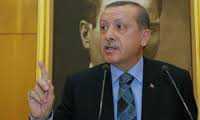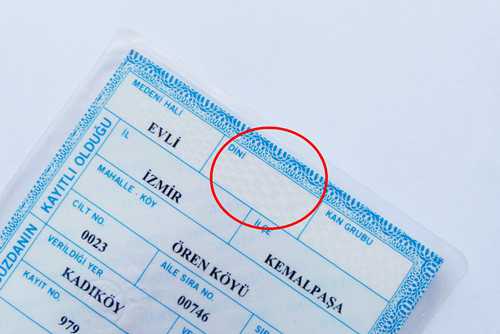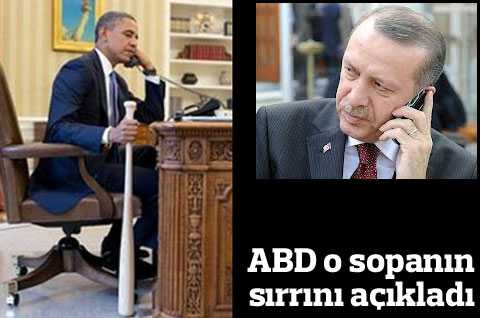It is indeed a puzzlement.
How could a government that rose to power democratically then destroy democracy and all the freedoms it entails? I mean Hitler did so but that was then and this is now. Isn’t it?
Worse, how could this same government destroy the country’s army and then pick a fight with its friendly neighbor who happens to have a quite strong military backed by one of the world’s largest nations (Russia). This is quite stupid, isn’t it?
Even worse, how could a nation, supposedly comprised of a vast majority of Muslims, sign on so quickly to kill its fellow Muslims in direct violation of their sacred Koran (4:92) which says that for doing so “they will burn in hell forever.” This seems somewhat sinful, doesn’t it? Disrespectful, isn’t it? Even blasphemous, perhaps?
And how could this same nation disinherit the one genuine heroic figure it possesses (Atatürk) who almost one hundred years ago rescued it from the rubble of the collapsing Ottoman Empire? Oh, and the prime minister recently called him a drunkard. Imagine abandoning the man who intimately knew the past, acted decisively in the present, and clearly saw the future? Unbelievable, isn’t it? Disgusting even?
And how could the prime minister of this same country speak to the world through the United Nations about the world’s ecological crisis while simultaneously destroying mountains, streams, lakes, rivers, forests, green space in general and even agriculture? And all the while this same prime minister carpet bombs vast swaths of nature to build superfluous bridges, highways, tunnels, airports, and nuclear reactors on fault lines. This seems somewhat hypocritical, doesn’t it? Bordering on deceit, wouldn’t you say?
And this same steward of the nation’s wealth also divines a monstrous canal from the Black Sea to the Marmara sure to disrupt sea currents, water temperatures, and change salinity counts to disturb or even destroy fish life, fisheries and the fishing business, not to mention the possible release of enormous fields of swamp gas long-submerged in the Black Sea. This appears to be a bit grandiose, doesn’t it? Not to mention, recklessly uninformed perhaps?
Need a breath from all of this? Sorry, you cannot afford to have one. Time is of the essence! Anyway, the air in Istanbul and virtually everywhere the government treads stinks from pollution and its own toxic presence. This government has forged a new definition for the words “treachery” and “deceit.”
Actually there is no longer an Istanbul since its now all tricked up with garish lights and bizarre architectural glitter like a trollop on Broadway. All of its cheap finery disguises massive corruption, theft and favoritism.
The government’s trumpets blare about the wonderful economy. Wonderful, indeed. But, sorry people, nothing belongs to the Turkish nation anymore. Everything has been sold: roads, bridges, mines, electric power utilities, factories, businesses, airports, shipyards, ferries, piers, telephone systems…imagine something else, and it’s been sold. This is called the Turkish economic miracle. Weird, isn’t it? And meanwhile omnipresent shopping centers suck the money and lifeblood out of the people and small businesses. It seems all backwards, doesn’t it?
Oh, and let’s not forget the women, both secular and covered varieties. Women, the sex under threat of extinction: by honor killings, rapes, domestic violence, arranged, that is, “forced” marriages, enslavement via “religious” headscarves, by stifled opportunity, by education denial, by kitchen and household captivity, by denial of thought, that is, the right to refuse, rebel and reject, as well as the right to use their bodies anyway they chose: in birth, in abortion, in dance, anyway they chose without the government meddling on bogus religious grounds. And now this so-called government even asserts where and when kissing is appropriate.
So back to the question. How could all this happen so fast? Well, examine the map of Turkey. The country is crawling to the point of infestation with American military personnel and American nuclear weapons, radar installations and bombs, bombs and more bombs. Everyone knows of the conspiracy to destroy Syria between America and Turkey, excuse me, between Obama and his best international friend Erdoğan. It’s a mafia sort of arrangement. Erdoğan’s close friendship with Bashar al-Assad was suddenly interrupted by Obama who, like Al Capone (pictured above), brandished a baseball bat during a telephone conversation with the Turkish version of Vito Corleone in August 2012. While Capone rearranged the skulls, faces and brain tissues of his troublesome lieutenants, Obama merely rendered a subtle post-modern hint of the “or else” side of the offer. Of course, Erdoğan could not refuse anything American and the rest is their shameful, mutual ongoing war crime.
So enthusiastic is al-Assad’s former friend that he even evokes Allah’s blessing on this exercise of imperialist power, a gross human rights violation and murder to the point of genocide. Political Islam and terrorism courtesy of the Turkish prime minister and America’s Nobel Peace Prize laureate. Shameful, isn’t it? Nauseating, isn’t it? So what needs to be done?
In fact, all of Turkey’s undoing has been done under the cover of Allah. Why? Because Turkey is an Islamic nation. Why so? Because you (and your government) let it be labeled as such. Is America known as a Christian nation? Not really. So why isn’t Turkey considered simply another democratic, secular nation, independent of religion? Good question, isn’t it? Sadly, Turkey is now an almost 100% political Islamic nation. Forget the Koran, it’s murder and money that matter. All the hard-earned secular and democratic rights are in the process of nullification. And all in the name of a politicized religion. The fundamentalist, fascist government is always rendering “spiritual” guidance to protect its “people.” Don’t allow them to do it in your name! Something must, and can, be done! Obama and his fellow schemers everywhere love the idea that Turkey is 99.8% Islamic according to the CIA Factbook. Know one thing! These subverters don’t care if you’re Turkish as long as you’re Islamic. And they get away with murder in your “Islamic” name. Don’t let them! Don’t be an “Islamic” Turk. Instead, be what your government is not. Be a “real” Turk, a secular Turk living life without being labeled by a fascist regime. Let the government and their collaborators be Islamic political hacks. They are not real Turks in the slightest. The proof? Simply examine their behavior, their attitude, their grim-faced arrogance, their VIP mosques. I don’t know what they are but they’re not the Turks that I know. Maybe they’re from Hollywood, central casting’s attempt to characterize Turkish tough guys? Who knows the ways of the CIA? Who cares? Just protest your official assignment of a religious designation! Remove it! Make your secularity official! Be Turkish and nothing but! How?








